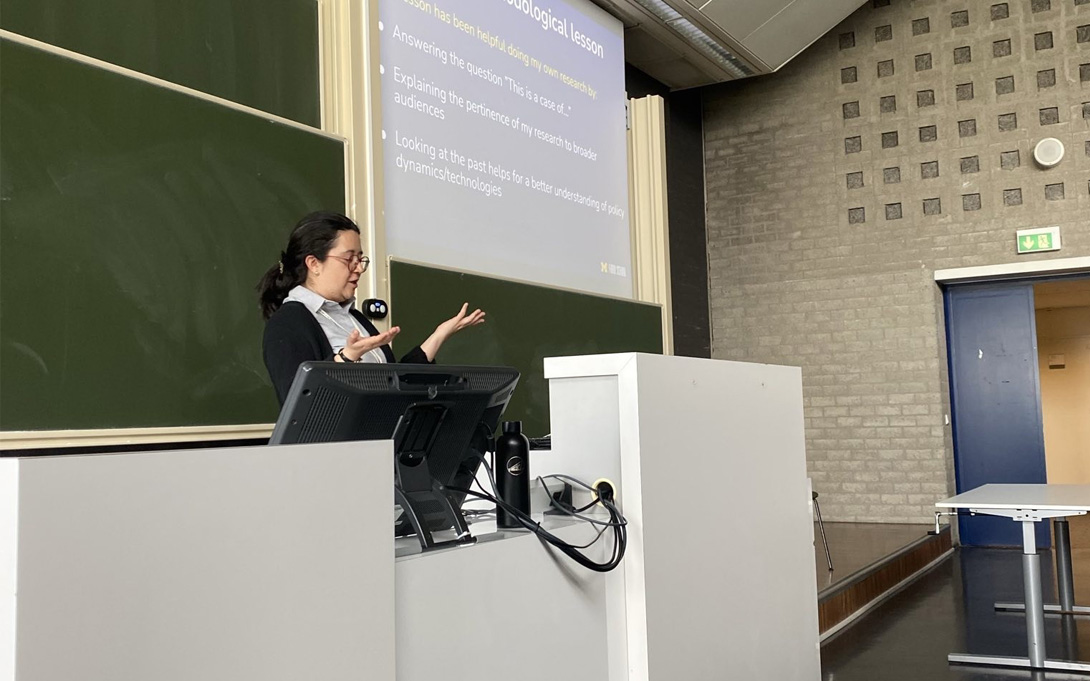
By Margarita Maria Rodriguez Morales, PhD student in Public Policy and Sociology
Thanks to the support of the STPP student development grant, I could attend the 2024 4S/EASST meeting, that is the quadrennial joint meeting of the European Association for the Study of Science and Technology (EASST) and the Society for Social Studies of Science (4S). During four days, I enjoyed vibrant academic conversations and presented my previous research experience in the 2020-2021 TAP’s Vaccine Hesitancy project. This meeting hosted an academic audience to promote conversations related to topics of study of interest in Science and Technology Studies. In my case, I enjoyed a wide number of panels that addressed topics of my academic interest, such as digital infrastructures for welfare systems, data, and states, or decolonial approaches to algorithmic justice.
The first day of the meeting I presented on the panel “Not Doomed to Repeat It: Using Analogical Case Study for Technology Assessment and Governance,” which brought the experience of STPP in through using the Analytical Case Study (ACS) method for the research initiatives under its TAP component. My presentation described, from my student’s perspective, how I learned to use the ACS method in the 2020-2021 TAP vaccine hesitancy project and the main lessons it left me as a trainee STS researcher. I grouped the main lessons into three major groups: In terms of methodology, the ACS approach taught me how, when, and to what extent to use analogical cases, the identification of patterns, and their extrapolation. The interdisciplinary character of the group of students also left key takeaways on how to incorporate other lenses when analyzing analogical cases. Finally, I highlighted how the TAP project taught me lessons on how to reach non-academic audiences, producing documents that contribute to policymaking processes, specifically with recommendations for policymakers and technology developers. Presenting our TAP experiences allowed me and the rest of my panel to share the value of the ACS approach for technology assessment, finding the interest from other scholars in applying these methodologies.
During this meeting, I also had the chance to connect with other grad students and scholars with similar research interests to mine. I could hear firsthand critical Foucauldian perspectives on the digitization of state services in countries like Brazil, Norway, or Denmark; how data supply chains work in cases such as the UN Refugee Agency Vulnerability Assessment Framework predictive model; or the tensions between quantification and individual instinct in the implementation of the Austrian healthcare system semi-automated fraud detection technology. I also learned from more informal “lunchtime activities” such as the one led by Ford School and STPP Prof. Yousif Hassan, “Decolonizing Data Infrastructures,” which brought the attention of many participants from all over the world who use decolonial research perspectives to study the challenges of datafication for contemporary societies.
After four intense days, this meeting gave me the chance to have fruitful academic and professional exchanges with a diverse group of people, with varied interests and perspectives on science and technology. I also enjoyed the possibility of showing the results of our TAP project, one of the ways in which STPP is contributing to tech policy discussions. STPP’s TAP has done an incredible job of bringing together social research and policy contributions to promote more equitable technological futures.
